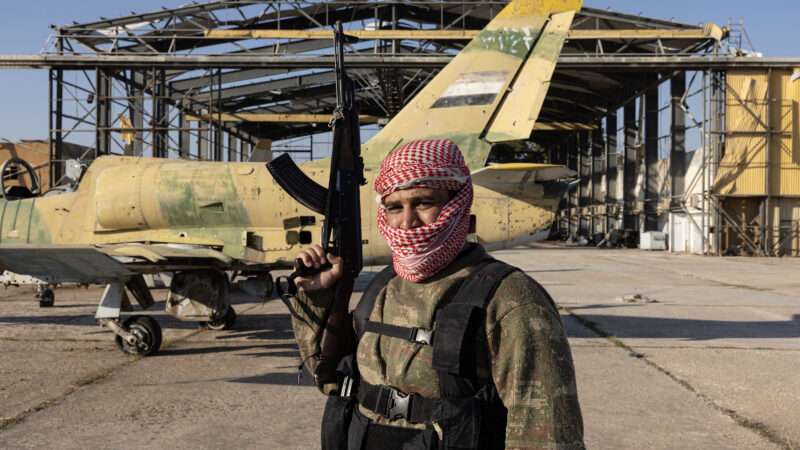
Operation Timber Sycamore was perhaps the most expensive covert operation since the Cold War ended. From 2013 to 2017, the CIA spent over $1 billion trying to strengthen "moderate rebels" against both Syrian President Bashar al-Assad and anti-American extremists in the opposition. Separately, the U.S. military spent $500 million on its own Train and Equip program for Syrian militias. And these programs failed, miserably. Al Qaeda and the Islamic State cannibalized the Syrian opposition before Assad took back power through a brutal crackdown.
Now it looks like the Syrian government is falling to exactly the forces that the U.S. wanted to keep out of power. Abu Mohammed al-Jolani, former head of Al Qaeda in Syria, organized a surprise offensive against the Syrian government on November 27. Since then, Jolani's Levant Liberation Committee (known by the Arabic acronym HTS) has taken Aleppo and Hama, two major cities that the Syrian opposition had never fully conquered before. The Syrian army is in disarray. Jolani, a man considered an outlaw by the U.S. government, is accomplishing in a week what the CIA tried and failed to do for years.
The collapse of Assad's government is not a sign, as some hawks in the think tank circuit have claimed, that the Obama administration should have pushed earlier and harder for regime change. On the contrary, it's a sign of how futile U.S. intervention has been. The U.S. spent years paying Syrians to kill their countrymen without being able to shape the outcome, before giving up in 2017. The resurgence of HTS now is an unintended consequence of U.S. policy—Assad's main backers, Russia and Iran, have been bogged down in proxy wars—and an unwanted one. As HTS was besieging Hama earlier this week, the Pentagon reminded reporters that it still considers Jolani a terrorist and HTS a terrorist organization.
A common criticism a decade ago was that the U.S. was funding extremists. The problem may have actually been the opposite. By seeking "moderate rebels," the U.S. programs selected for forces that had a vague ideological platform and were easy to control. This patchwork of militias suffered from infighting, corruption, and gangsterism. No wonder many ended up surrendering or selling weapons to Al Qaeda.
The U.S. didn't actually trust these partners to build an alternative to Assad, but expected them "to put pressure on him to negotiate" with the international community, in the words of former Amb. Robert Ford, the last U.S. ambassador in Syria. Instead, Assad took back cities through extreme force. Former President Donald Trump finally ended Timber Sycamore after watching a video of CIA-backed rebels beheading a child prisoner. The U.S. military shifted its support to Kurdish forces elsewhere in Syria.
Once the U.S. aid spigot turned off, many Free Syrian Army units rebranded themselves as the "Syrian National Army" and became soldiers of fortune for the Turkish government. These Syrian mercenaries acquired a reputation for pillaging, rape, and torture, especially against Kurds. One U.S. official called them "thugs, bandits, and pirates that should be wiped off the face of the earth." The U.S. State Department has imposed human rights sanctions on the Hamza Division, a Syrian National Army unit that had received $8.8 million from the U.S. government, and the Sultan Murad Division, another formerly CIA-backed unit.
When these same Syrian National Army fighters tried to enter Aleppo this week, HTS reportedly arrested several of them on accusations of looting. Again, formerly U.S.-backed rebels had such a criminal and rapacious reputation that they had to be reined in by Al Qaeda veterans.
Of course, it's one thing for HTS to muscle out the Syrian National Army and overthrow Assad's government, which similarly runs on brutality and corruption. It's another for HTS to actually govern the country. Jolani has been trying to portray himself as a genuine reformist, promising to protect members of all religions and issuing statements that "diversity is our strength." Many Syrian minorities are understandably wary of those promises in light of Jolani's history persecuting Christians, Druze, and Shi'a Muslims.
Whatever happens next, the United States will likely not be in the driver's seat. All the American money spent and Syrian blood it paid to spill amounted to very little in the end.
The post Outlaws on Pickup Trucks Accomplish What $1 Billion in CIA Money Couldn't appeared first on Reason.com.







